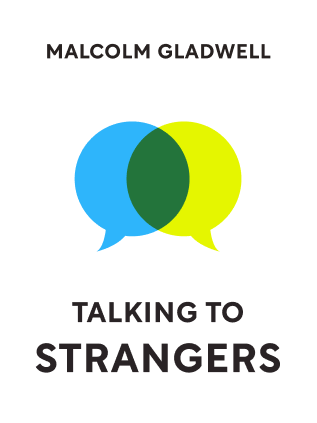

This article is an excerpt from the Shortform book guide to "Talking to Strangers" by Malcolm Gladwell. Shortform has the world's best summaries and analyses of books you should be reading.
Like this article? Sign up for a free trial here .
What is a word stem completion task? Is the way you complete it indicative of your personality? And what do answers to that question say about your bias against strangers?
We’ll look at how the word stem completion task works, whether your answers to the task are random, and how your assessment of the task can reveal your biases.
What Is a Word Stem Completion Task?
There are two puzzles– there is a pattern in human behavior of
- The inability of otherwise intelligent people to decipher when a stranger is lying
- Becoming worse at judging a stranger once you’ve met him
The problem at the heart of these two questions is that people assume that they can read others based on simple clues. But when it comes to strangers, nothing is as simple as it seems.
The common word stem completion task used by psychologists is a good example of this point. Take a look at the following set of words and fill in the blank letters. Do this as quickly as you can, without second-guessing your answers:
Word Stem Completion Task
_ _ TER
TOU _ _
STR _ _ _
B _ _ T
_ _ NNER
You just did the word stem completion task. Now, look at your list. Do you feel that your choices say something about who you are as a person? Do you think it’s significant if you completed the word TOUGH instead of the word TOUCH, for example?
Psychologist Emily Pronin and her team gave a group of people this exact word stem completion task some years ago. When asked if their choices were indicative of their personality, the people in the group said no. They said that their own word completions on the word stem completion task were nothing but a random set of words.
However, when Pronin gave the people in the group the word stem completion tasks of other participants (strangers), they seemed to change their minds. They made assumptions about the other participants based on their word choices. For example, one participant accused another of being competitive, based on his completion of the words BEAT and WINNER.
None of these people seemed to be aware of how contradictory it is to call your own word completions random, yet make assumptions about others based on their word choices. This is an example of how strangers often misunderstand each other: A person assumes that he has insights about others, but doesn’t consider that the opposite could be true (that the stranger also has insight about him). This person believes that he can see into the heart of a stranger based on his first impression, but would never expect a stranger to be able to do the same to him.
The three main mistakes that people make when forming a first impression of a stranger are:
- Defaulting to believing the stranger will tell the truth.
- Assuming the stranger will be transparent.
- Neglecting to consider how the stranger’s context affects his behavior.
This book will illustrate those three mistakes and how they relate to the two puzzles of interacting with strangers.

———End of Preview———
Like what you just read? Read the rest of the world's best book summary and analysis of Malcolm Gladwell's "Talking to Strangers" at Shortform .
Here's what you'll find in our full Talking to Strangers summary :
- Why we don't understand strangers
- How to talk to strangers in a cautious way so you don't get fooled
- How Hitler deceived so many world leaders






